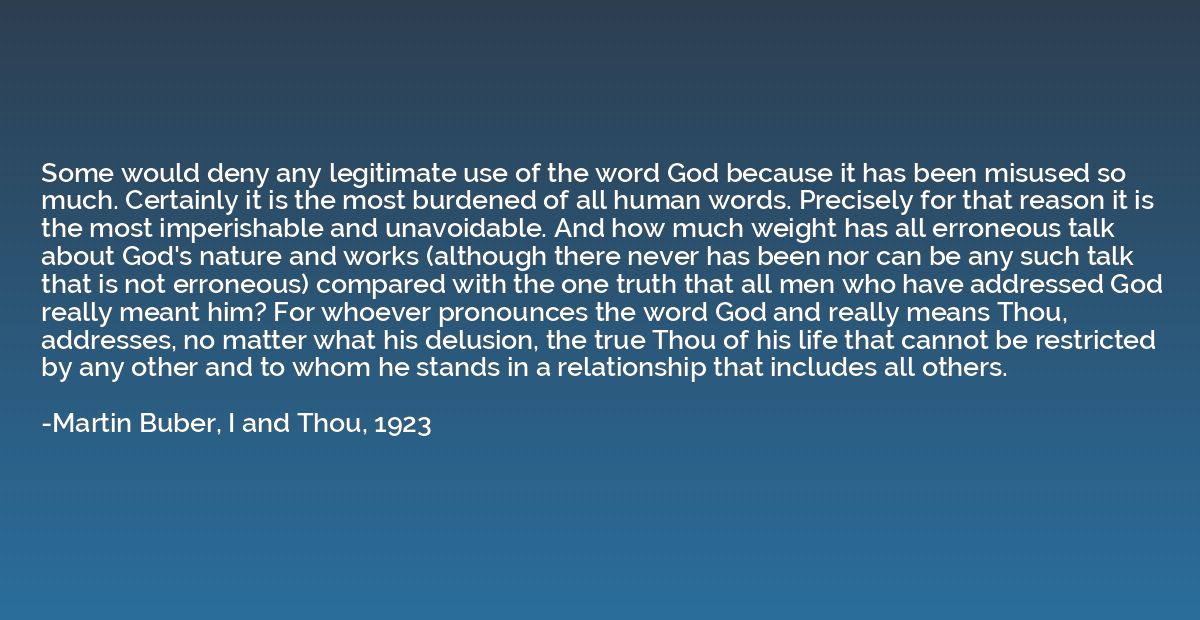Martin Buber, I and Thou, 1923 Quotes
A collection of quotes by Martin Buber, I and Thou, 1923.
Martin Buber (1878-1965) was a prominent Jewish philosopher, theologian, and writer, most notable for his seminal work "I and Thou," published in 1923. Born in Vienna, Austria, Buber grew up in a staunchly Jewish family and was deeply influenced by his upbringing.
Buber's philosophy centered around his concept of relationships, particularly the distinction between two modes of relating to the world; one being the 'I-Thou' relationship and the other being the 'I-It' relationship. In "I and Thou," he argued that genuine human connection and understanding could only be achieved through the 'I-Thou' relationship, which prioritizes an authentic encounter with another person as an equal, rather than treating them as an object or means to an end.
Drawing from his Jewish faith and existential philosophy, Buber stressed the importance of dialogue, empathy, and presence in fostering meaningful connections with others and with the divine. His work had a profound impact on various fields, including theology, psychology, and sociology, and continues to be widely studied and discussed.
Beyond "I and Thou," Buber made significant contributions to Jewish thought, interfaith dialogue, and social activism. He advocated for peaceful coexistence between Jews and Arabs in Palestine and was involved in the Zionist movement. Buber's prolific career and his dedication to fostering meaningful relationships have solidified his place as a leading figure in 20th-century philosophy.




